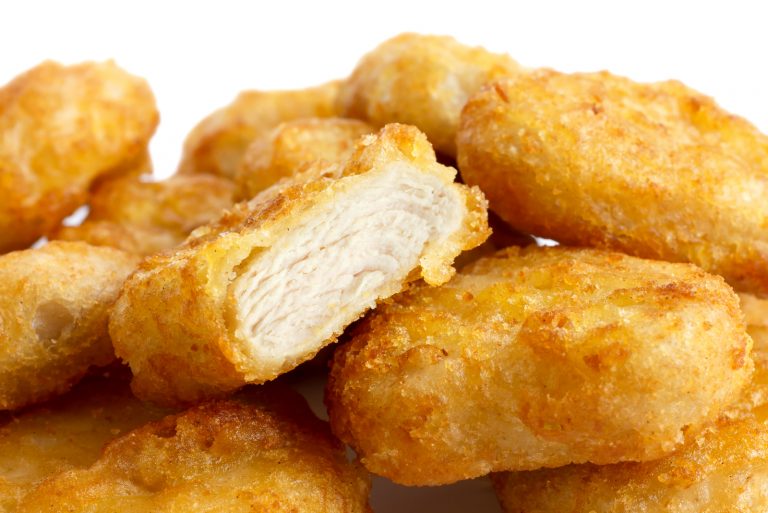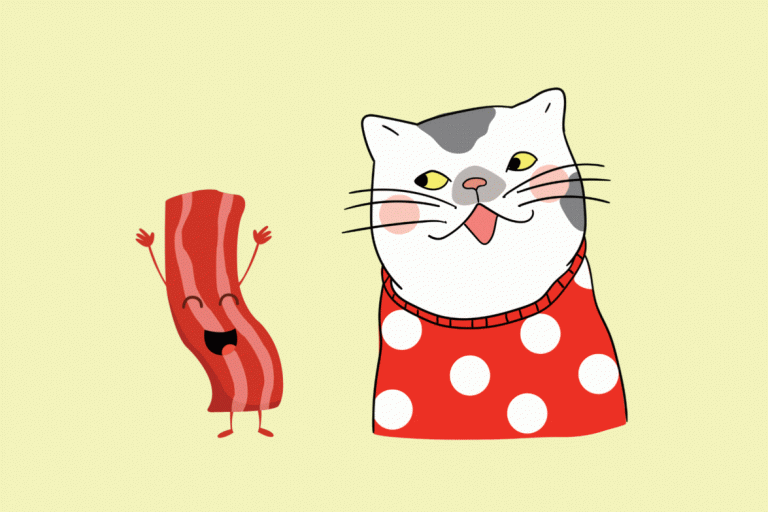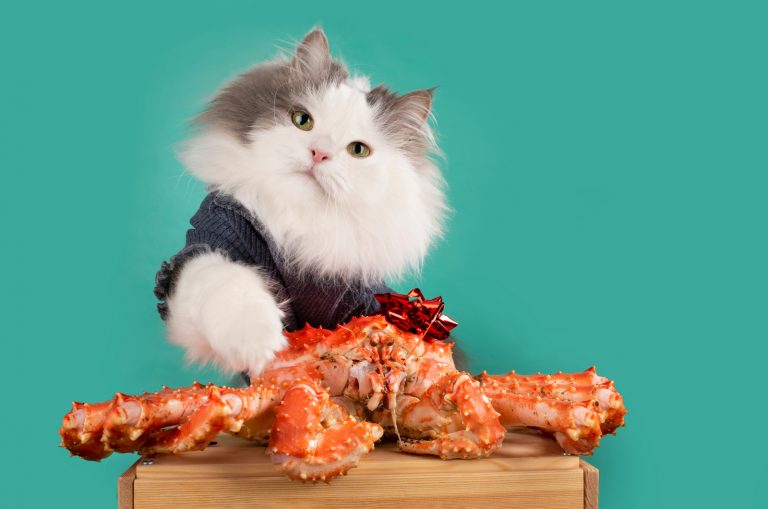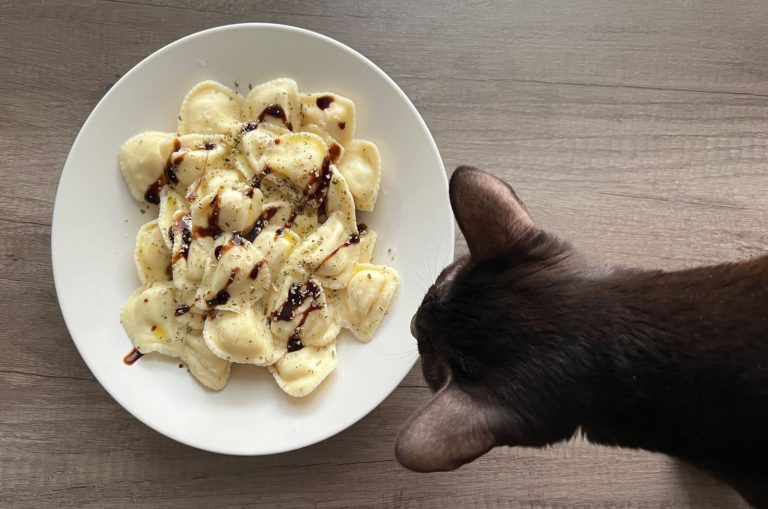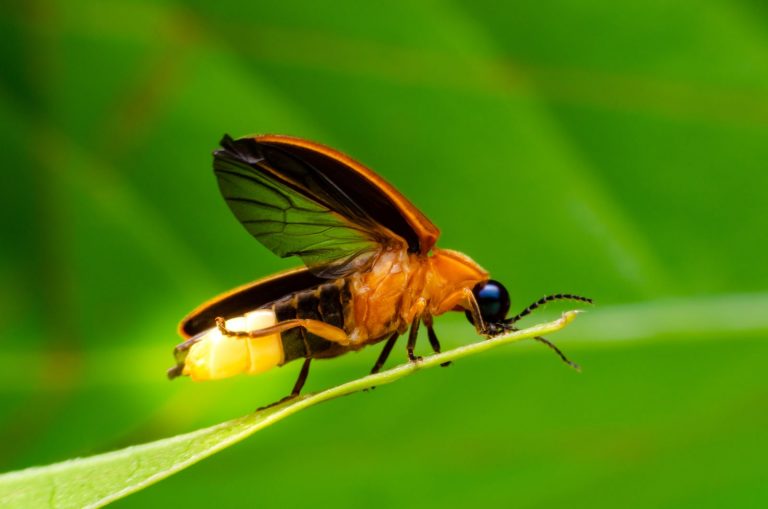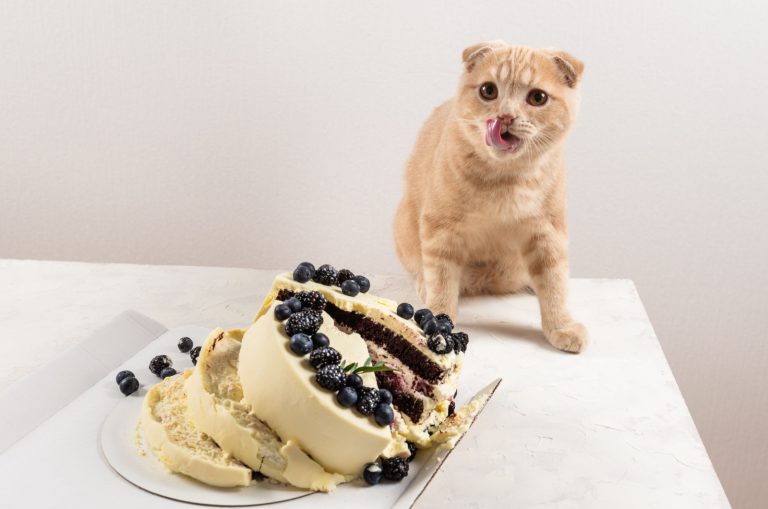Can Cats Eat Bell Pepper? All There Is To Know!
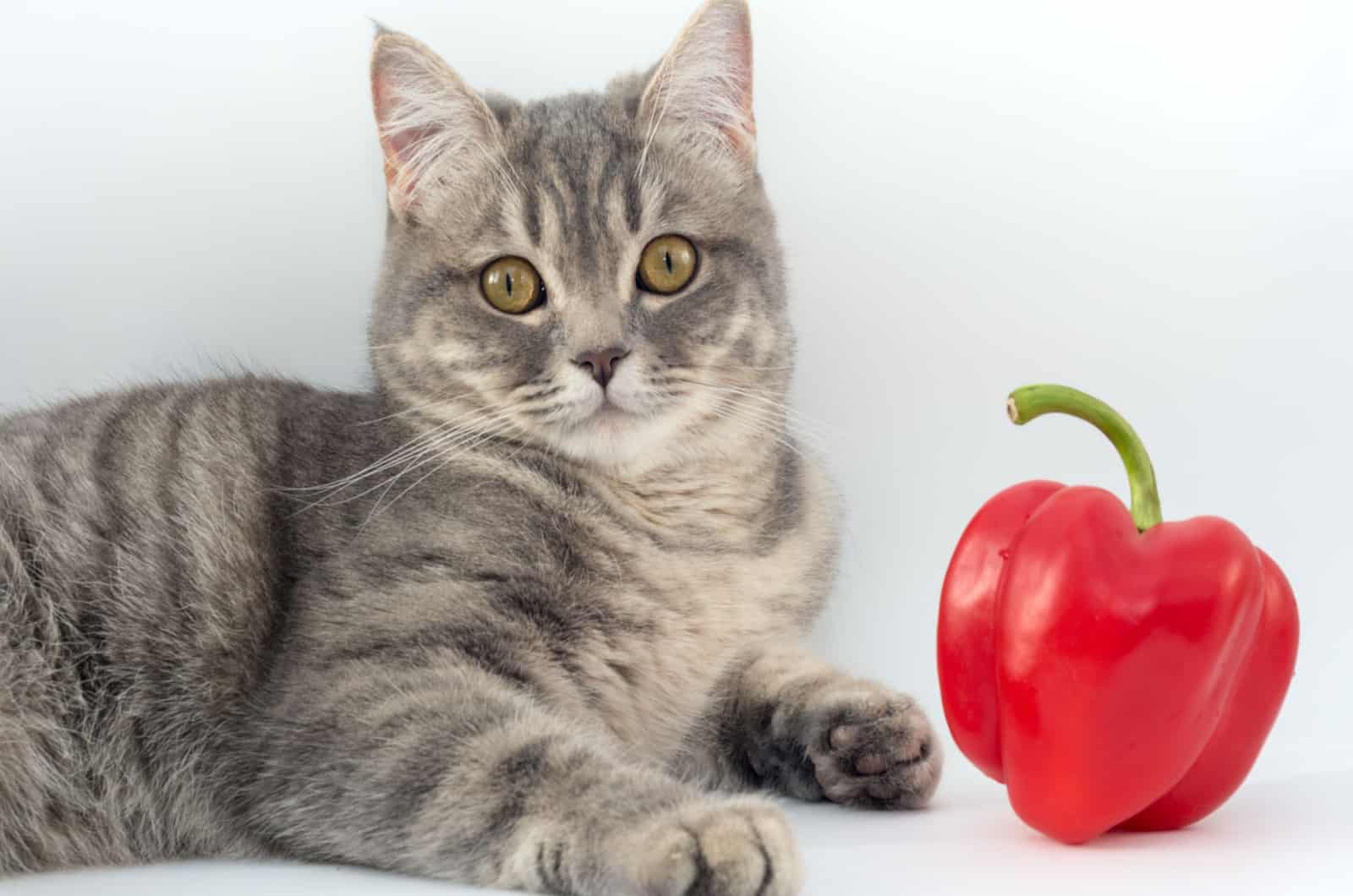
Cats are born obligate carnivores; they require a meat-based diet. However, some vegetables every now and then are totally acceptable. Can cats eat bell pepper? Is it safe?
Yes it is! Cats are allowed to eat bell peppers, but only in small quantities.
Bell peppers don’t pose a risk of toxicity for felines, however if your cat’s been eating peppers in large amounts, it can be harmful.
Cats can have a hard time digesting bell peppers, which is the main disadvantage of this vegetable. Besides this, there are some health benefits associated with cats eating bell peppers.
Bell peppers can help in the prevention of health conditions such as cancers, visual impairment, and anemia. They are also good for some digestive issues as well as hydration.
Now how can bell peppers be both good and bad for a cat’s digestive system? Keep on reading to find out everything you need to know about bell peppers!
Can Cats Eat Bell Pepper?
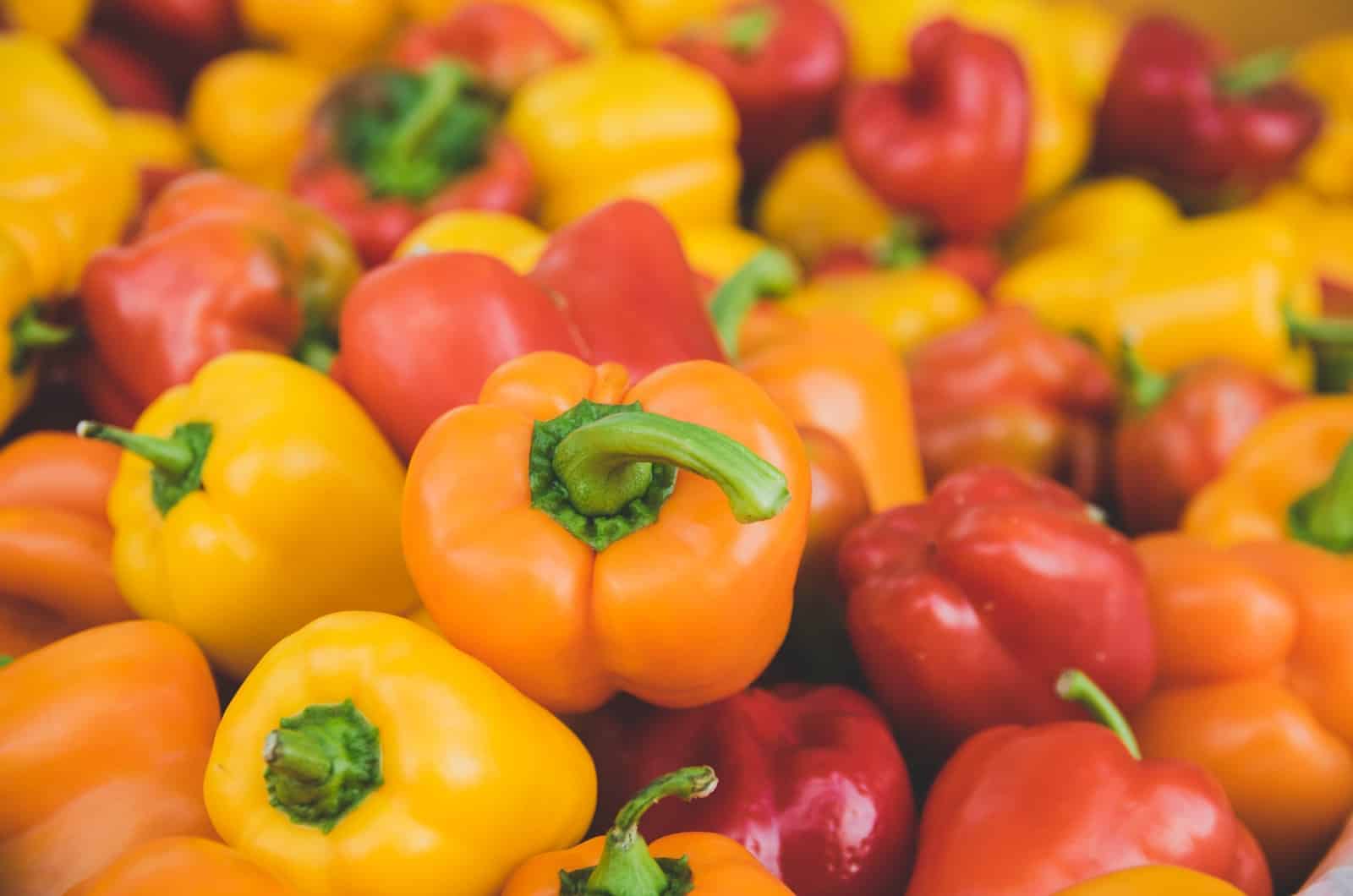
Peppers are a very good source of minerals and vitamins for human nutrition. When it comes to cats, however, the situation is rather different.
Red, yellow, and green bell peppers are filled with several vitamins, but these vitamins aren’t just as useful to cats. Cats, themselves, produce some of these vitamins and therefore don’t need them from bell peppers.
Nonetheless, bell peppers are safe and they do contribute to the cat’s general health and well-being.
The ASPCA has approved raw bell peppers for cat consumption. This isn’t to suggest they’re great for cats; it only implies that bell peppers are neither toxic or hazardous for cats.
However, giving your cat peppers is still not a great idea, or rather, it is simply not necessary to do so.
This is mostly because peppers don’t have the required nutrients that cats need. Cat meals are designed to provide all of the nutritional values they require, so always provide them with a meat-based, well-balanced diet of age-appropriate cat food.
As with most foods that have not been specifically designed for cats, you need to give only small pieces of bell peppers to your cat. Do not give them in large quantities.
Most cats don’t even like bell peppers, but if they do at one point want to have a taste, it is perfectly safe. Before you give bell peppers to your cat, always make sure that they’re clean and fresh. If you wish to serve them to your cat, they shouldn’t be coated in any oils, spices, seasonings, or dressings.
Pay attention to your cat‘s behavior when it tries bell peppers for the first time; give them just a nibble if they‘re interested in the taste.
If you later notice that your cat begins to vomit or gets diarrhea, don’t feed them the veggie again and contact the vet for advice. The vet may examine your pet and diagnose if your cat is allergic to bell peppers.
Suggested Read: Can Cats Eat Lettuce? Is It Safe Or Not?
Cats & Red Bell Peppers
Cats that like bell peppers, usually prefer red bell peppers over green or yellow ones. This is primarily due to the fact that red ones are less bitter and tastier to the cat than green or yellow ones.
Red bell peppers have a lot more vitamin C and beta carotene than yellow bell peppers. And because red bell pepper isn’t toxic to your cat, it’s safe to give a small piece of red bell pepper to your cat. Just don’t let it eat too much at once.
Cats & Green Bell Peppers
Out of these three types of bell peppers, the green one is the least ripe and has the lowest amount of vitamins when compared to red and yellow bell peppers. However, cats do not require any extra vitamins, so it won’t hurt your cat if it eats a tiny bit of green pepper veggies.
Cats & Yellow Bell Peppers
There are a couple of types of bell peppers, with yellow being the medium mature version, and red being the ripest. Yellow bell peppers have the least vitamin C and beta carotene than red pepper which has the most.
If your cat enjoys eating yellow bell peppers, you can feed it some, but only in small quantities.
Health Benefits Of Bell Peppers
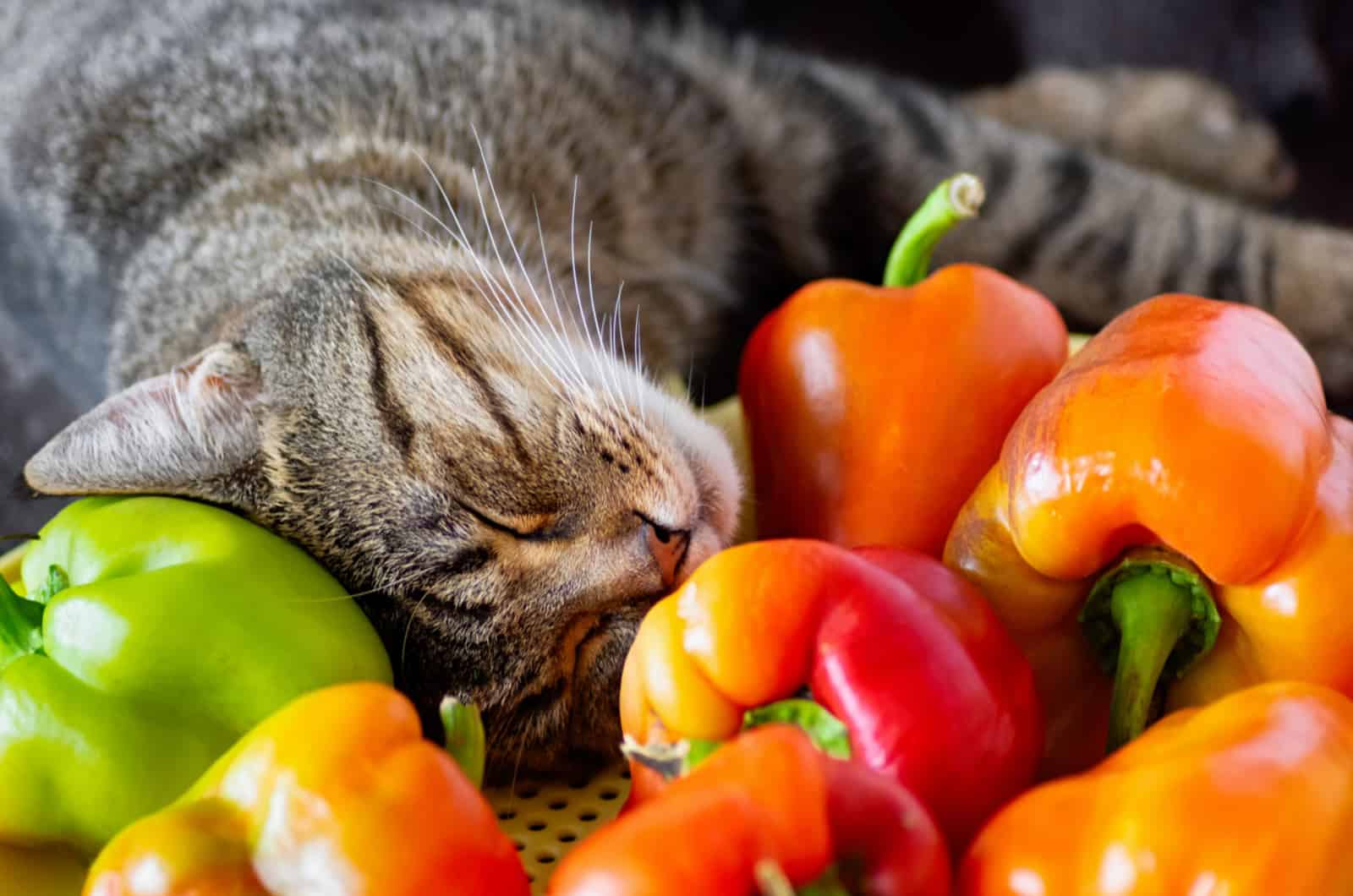
1. Prevents Anemia
White gums, appetite loss, and lethargy are all symptoms of anemia in cats. If you do not contact your veterinarian right away after recognizing the symptoms of this condition, your cat can become seriously unwell and might eventually require a blood transfusion in order to recover.
The transfusion operation can be unpleasant and painful for your cat, and it is also expensive for the owner. As with other health disorders, the most efficient strategy to prevent anemia is to avoid the causes.
Fortunately, bell peppers may lower the risks of cats developing anemia. This is due to the high levels of both vitamin C and iron present in bell peppers, both of which are powerful in preventing anemia.
Vitamin C strengthens your cat’s immune system and improves iron absorption. To protect your cat against anemia, you can add bell peppers into iron-rich meals like meat (for protein) and spinach to boost iron.
You can also check out: Can Cats Eat Spinach? This Is What You Need To Know
2. Lowers The Risk Of Cancer
Cat cancers, like human cancers, can be linked to their living habits and their diet. As a result, you should feed your cat a diet that is both therapeutic and preventive. Bell peppers include antioxidants such as quercetin, luteolin, zeaxanthin, and capsanthin.
These chemicals contain anti-inflammatory effects that inhibit the proliferation of malignant cells in cats. These are often included in cat’s therapy when they’re undergoing cancer treatments such as radiation or chemotherapy. Antioxidants also help cats avoid dementia, arthritis, and heart disease.
3. Lowers The Risk Of Visual Impairment
This is another benefit of bell peppers for cats, most typical for old cats. Bell peppers are high in carotenoids such as zeaxanthin and lutein. These carotenoids help reduce the risk of developing cataracts.
If you periodically feed your cat foods containing bell peppers, you may reduce your cat’s risk of visual impairment.
4. Helps With Digestive Issues & Hydration
Bell peppers have a high water content, making them an ideal choice for dehydrated cats. If your cat has gone without water for several days, or your cat has lost its appetite or changed its preferences, you need to rehydrate your pet.
You may give bell peppers to your cat to increase their water intake as well as offering plenty of fresh water. While the cat enjoys the delightful flavor of the bell peppers, it will also benefit from its moisture levels.
Peppers also contain a lot of fiber, which can be helpful if your cat is suffering from an upset stomach, or some other ailment concerning its digestive system, such as constipation.
Another green veggie that helps cats with their digestive system issues is celery. To learn more about it, read Happy Whisker’s article on can cats eat celery.
Possible Dangers Of Bell Pepper Ingestion
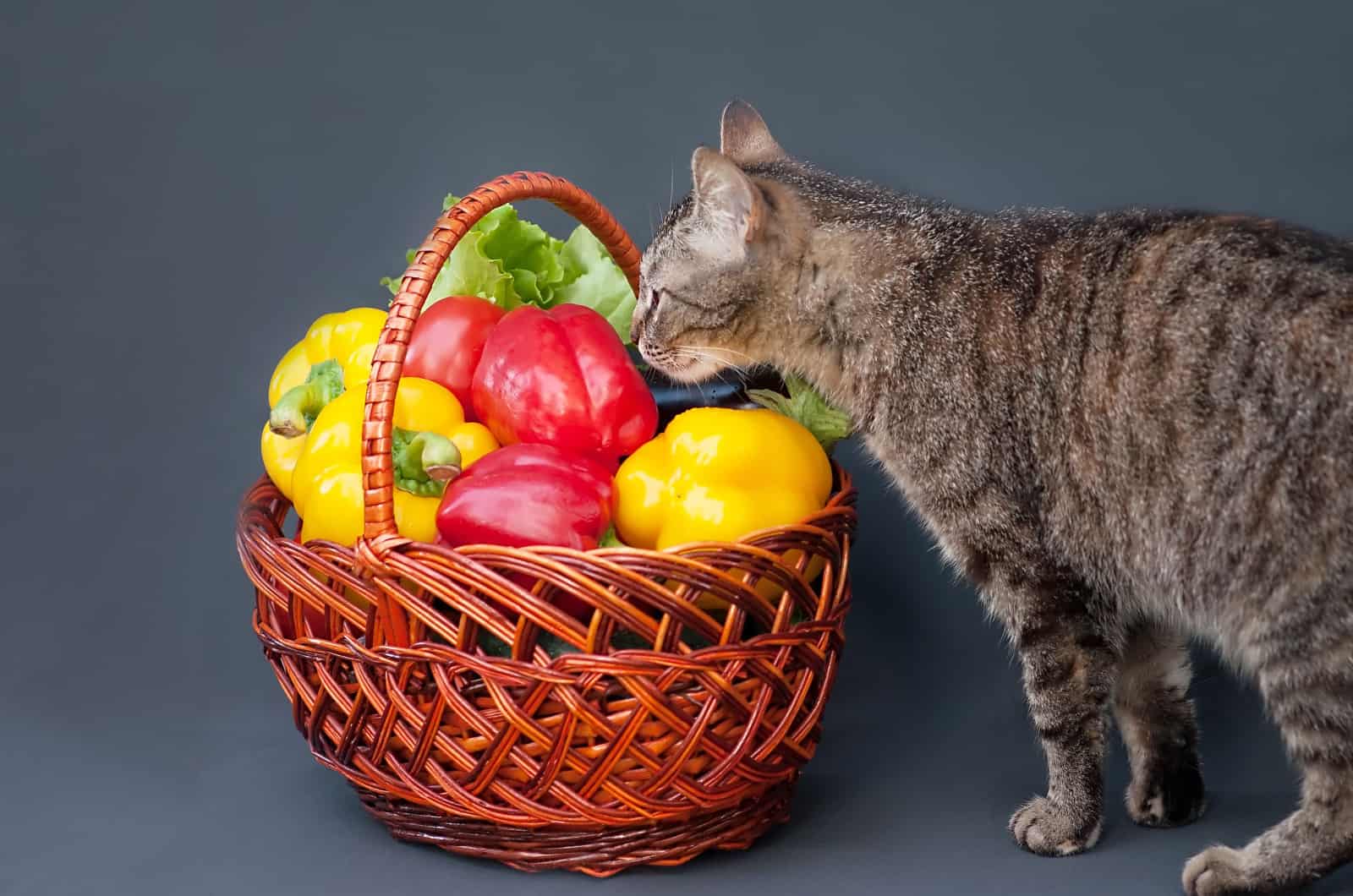
Even though bell peppers are safe and cats are allowed to eat them, there are a few dangers to consider if your cat eats a lot of bell peppers.
As I’ve said, a large amount of any food is not good for a cat. It is unlikely that your cat will consume a whole bell pepper, but even if it does, there’s no need for concern as bell peppers are not on the list of human foods that are toxic to cats.
However, cats’ digestive systems aren’t used to digesting these colorful veggies in large amounts. As a result, the cat may experience digestive issues such as nausea, vomiting, abdominal pain, and diarrhea, which should subside quite quickly.
If your cat displays such symptoms, keep an eye on its behavior and monitor it for any other side effects so you can decide whether or not you need to contact your veterinarian.
Bell peppers can also potentially choke the cat. Even though they are delicious and delicate, these veggies are not soft. This proposes the question again: can cats eat bell pepper?
Bell pepper plants do produce these beautiful bell peppers that are, generally speaking, safe for both humans and cats to eat, however, cats have a harder time digesting them.
As a result, you should probably avoid feeding them to your cat in large quantities. Also, bell pepper plants are a bit bitter, and most cats won’t like the flavor.
However, if you plan on adding them to your cat’s diet because of their health benefits, chop them up very finely and add them to your cat’s food.
FAQ
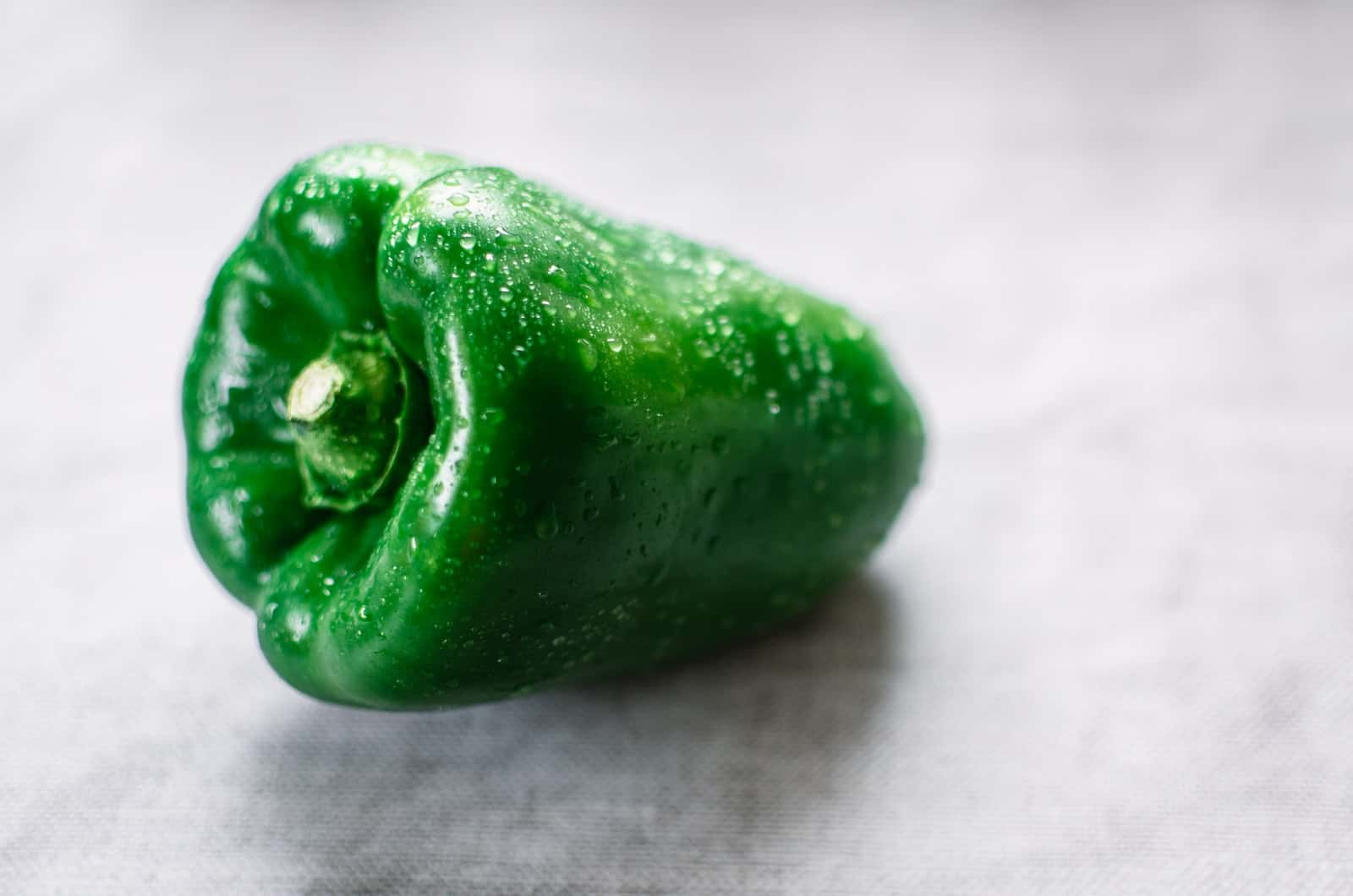
What are the health benefits of bell peppers?
Bell peppers are packed with antioxidants, and full of vitamins A and C. Bell peppers also help in the prevention of anemia in cats, they lower the risks of cancers and visual impairment, and they can help with a cat’s digestive issues by providing dietary fiber. They are also a good source of hydration.
How many calories are in a bell pepper?
There are 40 cal in one bell pepper (45 cal if it is a bigger bell pepper, and about 20 cal in a smaller one). However, if you serve your cat a nibble of a boiled bell pepper, it will have far fewer calories than this.
Does a cat need bell pepper in their diet?
Cats are carnivores above all else, and they do not require bell peppers in their diet. However, if you decide to include a small amount of raw or (even better) boiled bell peppers, you can because they are not toxic. Giving bell peppers to your cat is safe, just remember to give small doses.
What foods should cats not eat?
Human foods that cats should never eat include prunes, figs, raisins, yeast, bread, onions, scallions, chocolate, cheese, raw eggs, and chives… It is always best to consult your vet when planning your cat’s diet, and to offer a healthy mix of wet food and dry food that is both meat-based and age-appropriate for your cat.
Why might it be dangerous for cats to eat bell peppers?
Cats eating bell peppers can be dangerous because they may choke on a large piece or find them hard to digest. Some cats may experience gastrointestinal issues such as vomiting, abdominal pain, nausea, and diarrhea, which should pass quickly. However, if your cat is still unwell, you should go to see a vet in case they have an allergy.
Can cats eat jalapeno peppers?
No, jalapeno peppers are considered toxic and shouldn’t be consumed by cats, because they contain capsaicin; a chemical that causes the tongue to burn. Cats are more sensitive to capsaicin than people are. Many other types of spicy peppers, such as cayenne, also contain capsaicin so these should not be fed to cats either.
Final Words
So what to say, can cats eat bell pepper? To conclude, the short answer is yes, they can. If your feline friend is interested in these colorful veggies and wants to try them, a small portion will be safe for them. If you really wish to include bell peppers into your cat’s diet, you can. But remember to dose it!
If your cat’s body is unable to digest large amounts of bell peppers, your feline friend might experience gastrointestinal distress such as vomiting, abdominal pain, nausea and/or diarrhea, which shouldn’t last long. In some cases, cats can feel unwell for a little longer. If anything like this happens, seek your vet’s help!
I hope that this has answered your questions and cleared up any doubts about bell peppers and cats. Remember that boundaries are required when it comes to many aspects of raising pets, especially when it comes to their diet.
A small amount of bell peppers is safe, but every cat is different, so if you decide to give your cat a nibble of a bell pepper, pay close attention to their behavior and digestion afterward.
Thank you for reading, bye-bye for now. 🙂

